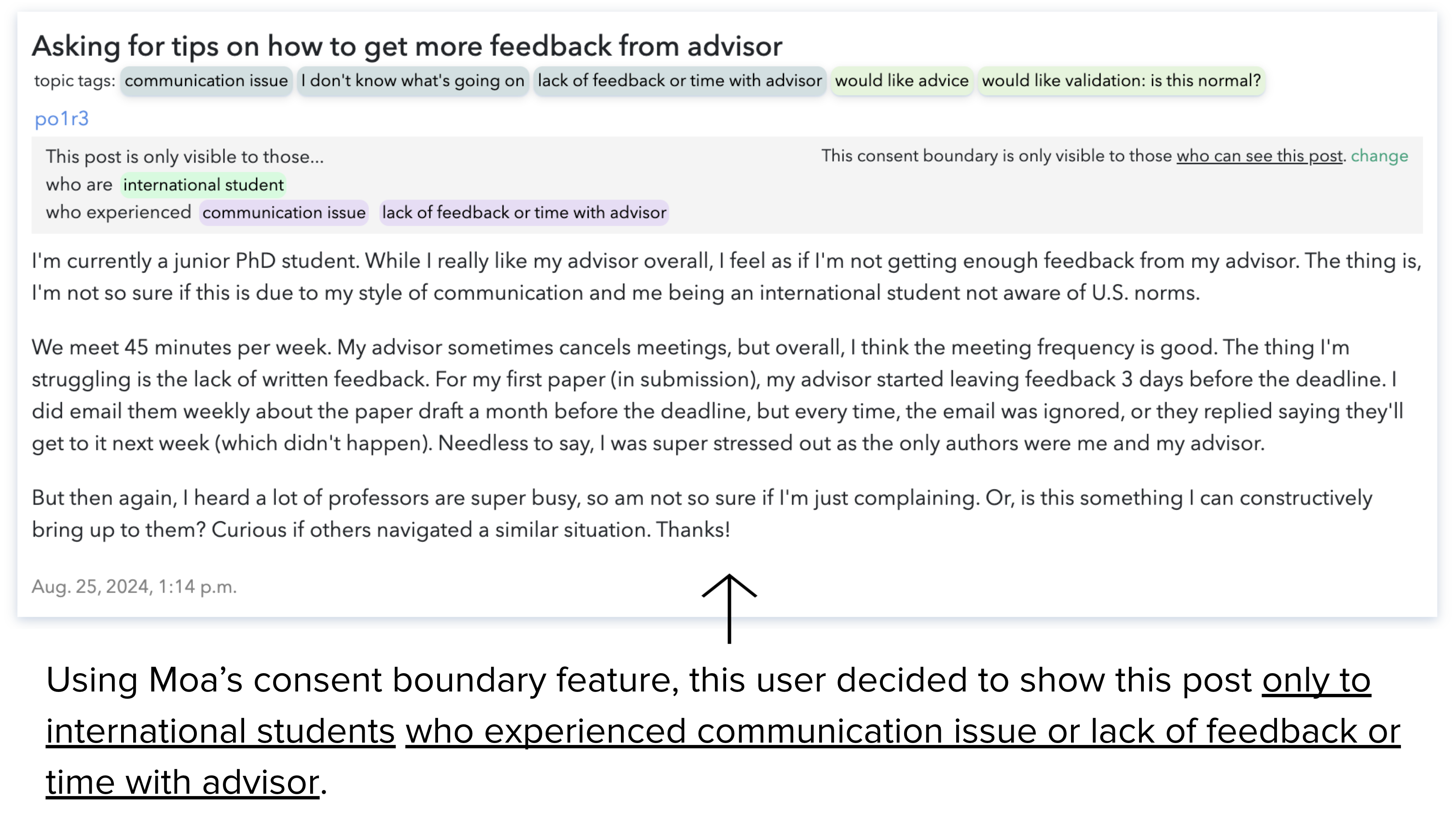About Moa (모아)
Who can use Moa?
How does Moa work? (Moa tutorial)
Who has access to my data?
Is Moa affiliated with the University of Michigan?
Is this study approved by the IRB?
How is Moa moderated?
What does Moa mean?
Related publications
How does Moa work? (Moa tutorial)
Who has access to my data?
Is Moa affiliated with the University of Michigan?
Is this study approved by the IRB?
How is Moa moderated?
What does Moa mean?
Related publications
Who can use Moa?
Moa is developed to support and empower PhD students who are experiencing any challenges—neglect, mistreatment, exploitation, or abuse—in their PhD advising relationships. This includes PhD students who are not so sure what exactly is going on, but nevertheless want to get advice for more clarity. It is also for PhD students who have a genuine interest in helping other PhD students, regardless of whether they have experienced challenges themselves. At this stage, Moa is only available to University of Michigan PhD students.How does Moa work? (Moa Tutorial)
For the full tutorial, please visit here. Or, if you prefer to schedule a 10-15 minute Zoom session with Jane to learn about Moa, please reach out to her at imjane@umich.edu.Our research found that PhD students would only feel comfortable using Moa if they had granular control over who can see their posts and responses—what we call "consent boundaries." A consent boundary indicates the set of people whom a person feels comfortable interacting with about a particular topic, and is closely related to one's identities and past experiences.

Moa lets users set a specific consent boundary per post—based on one's identities and experiences—in an unburdensome way. For example, a post about improving communication with one's advisor could be set to only be visible to PhD students who have experienced communication issues with their PhD advisors. Or, a user can set a certain post to be visible only to international PhD students.
